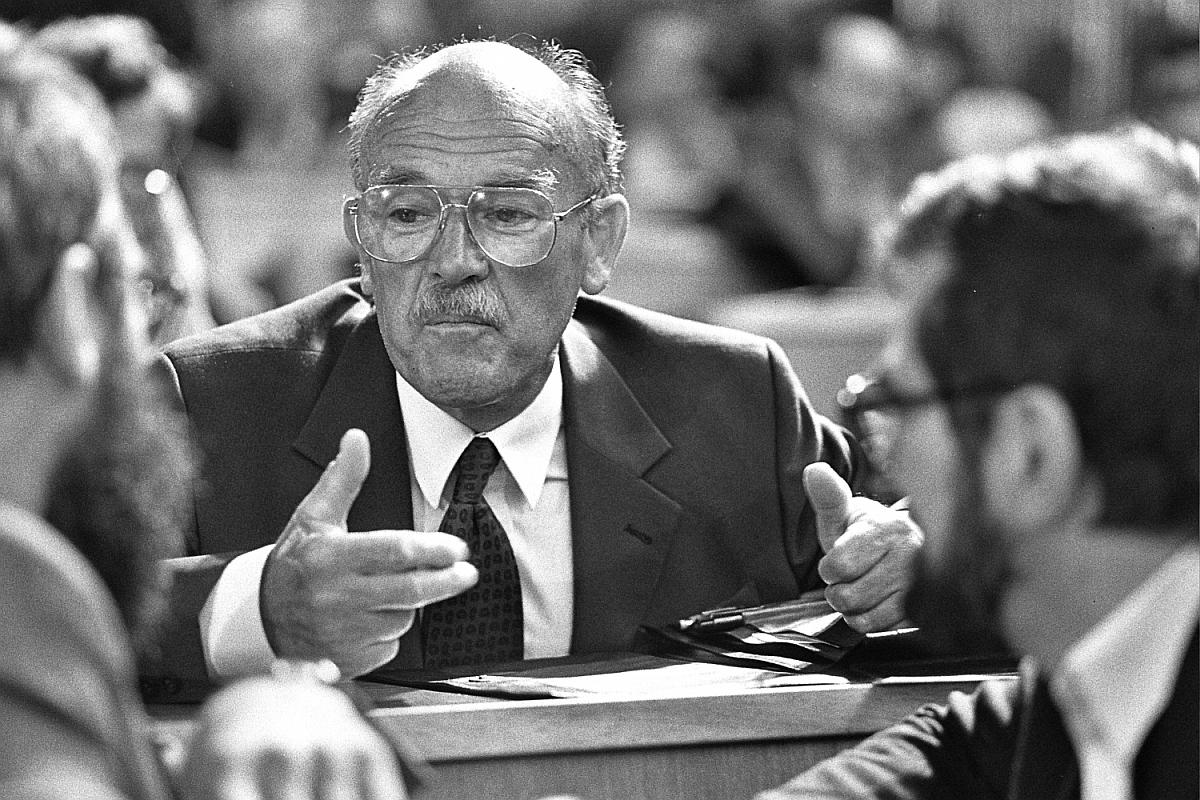France Bučar was born in 1923 in Bohinjska Bistrica. The life and career of Bučar, a politician and jurist, were marked by the turbulent historical events in Slovenia from the beginning of WWII until independence. During his lifetime he walked the path of a partisan, a judge, a professor and political dissident at the end of the 1970s and 1980s.
In the famous Trial against the Four in 1988, Bučar joined the Committee for the Defence of Human Rights and greatly influenced the creation of the May Declaration (Majniška deklaracija). The declaration later became the founding document of Slovenia's independence. It was from France Bučar's voice that we heard the crystal sentence: "We want to live in a sovereign state of the Slovene people!"
In 1989 he became the co-founder of the Slovenian Democratic Union (SDZ), which was the core of the Demos coalition, which won the first democratic elections in 1990. Bučar was named president of the Slovenian National Assembly and president of the Constitution Commission. He also took part in preparing the new Slovenian Constitution.
Presiding over the parliament on the 25th of June, 1991, he declared the Basic Constitutional Charter on the Sovereignty and Independence of the Republic of Slovenia. The same year on the 23rd of December the new Constitution was adopted. Bučar's active political career ended when his last mandate as MP ended in 1996.
Slovenia's leadership and three living presidents have expressed their condolences. Upon the death of this great Slovenian statesman, PM Miro Cerar wrote: "He was a good patriot, courageous, broad, with a good heart. He was an intellectual and a politician, but most of all a man with capital letter. He greatly influenced and contributed to our country's independence, the adoption of the Slovenian Constitution and the early development of our modern democratic culture."
MMC; translated by K. J.



































































